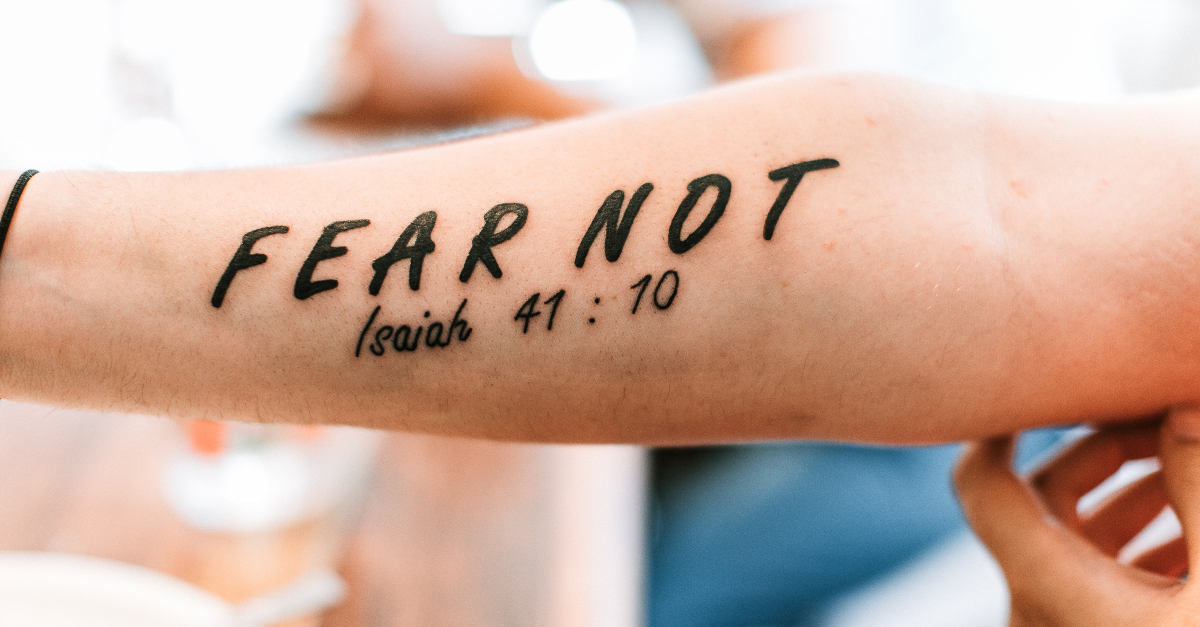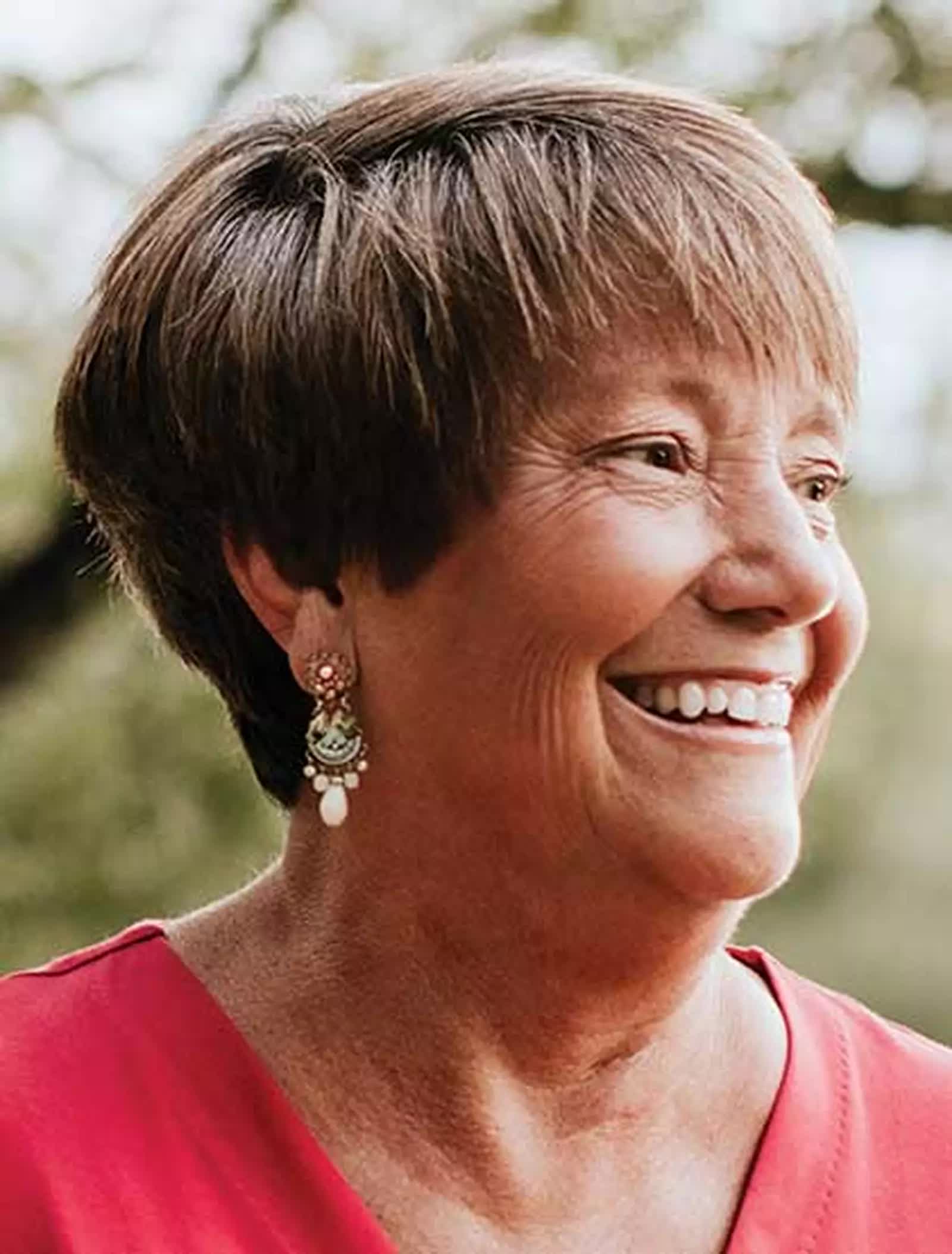How Tattoos Can Help Us Find Our Way

“A tattoo...is a true poetic creation and is always more than meets the eye.”
– V. Vale and Andrea Juno, Modern Primitives
“Mom, you would never get a tattoo,” my 13-year-old son taunted. He had not yet learned that I can’t resist a challenge, and his jab sent me searching for a tattoo parlor. I got my first tattoo—a small heart on the inside of my right wrist.
For me, it is an always-present reminder of the work God is doing under my skin to find a way to courage...to a brave heart ready to give and receive love.
I don’t look like a woman who loves tattoos. I’m 60 years old, with the wrinkles and age spots to prove it. But I also have a few tattoos—hieroglyphics of moments of meaning in my life.
As a therapist, mother, Christian, and student of tattoos, I am learning that under the etched lines and shadings of tattoos are stories that can show us the way to our true selves, to others, and to God.
Tattoos As a Way to Our True Self
Terri sat across from me in my counseling office. She had dark circles under her eyes and looked exhausted. Her tears of post-partum depression plopped onto the face of the screaming six-month-old squirming in her arms.
“I can’t be a mother,” she sobbed. “We didn’t expect to get pregnant this soon. I’m barely married. I’m just not cut out for this...look.” She held up her left arm—covered with a sleeve of tattoos.
But she was drawing my attention to her middle finger, engraved with an intricate spider’s web. In a flash I could imagine this artwork used in past protests, fits of anger, and easy dismissals of differing opinions.
I scrambled to find something positive to say about the defiant finger art, and about the overwhelming realities of motherhood. A childhood rhyme tugged at the corners of my mind about an itsy, bitsy spider. I launched into song, weaving my fingers to the words, “The itsy-bitsy spider went up the water spout...”
Her baby stopped crying, as they both watched. It turns out Terri remembered the familiar song, too. She followed my lead and laid her baby on her lap, expertly using her spider finger to mesmerize her crabby baby into cooing wonder.
“You are the perfect mother for this baby,” I told her. “In his infinite wisdom, God gave her to you—knowing everything about you and her.” She brushed away her tears, sat up a little straighter, and tenderly outlined her daughter’s face with her finger.
Terri was finding her way toward her true self. Our true selves are marked by compassion, curiosity, confidence, and connection. God uses everything and wastes nothing in pointing us to our true selves. And He promises that if we are willing, he will transform old, angry, shameful, defiant moments into something new.
Jesus declares, “Behold, I am making all things new...Write this down” (Revelation 21:5).
Maybe, even mark it with a tattoo.

Tattoos As a Way to Others
I believe it’s just not possible to love stories and simultaneously hate tattoos.
Prominent investment banker (and unlikely lover of tattoos), Michael Biondi wrote, “Our bodies were printed as blank pages to be filled with the ink of our hearts.” Of course, tattoos are not everyone’s cup of tea, but they are an entry into someone’s story. When we shudder in disgust, or come to a conclusion about someone because of their tattoos, we are missing an opportunity to know them. We decline to offer them welcome and worthiness—a reflection of the innate welcome and worthiness God etches into all our hearts, unconditionally.
God begins under our skin. But sometimes the best place for us to begin can be with what’s written on the skin.
The deepest longing of every human heart is to be completely known and loved. As I’ve written in my book, Belonging: Finding the Way Back to One Another, maybe understanding that we all long to be known “can encourage us to stop judging ourselves or other people...When we judge ourselves or others [even if it’s for a tattoo], it’s like ripping one page out of the story and throwing the rest of it in the trash. We can’t even begin to understand all the factors that led to the actions on one particular page.”
But we can ask about a tattoo and be on our way to connecting with others.
Our longing to be known can actually take us toward one another (and their tattoos) instead of away from one another.
In Belonging, I offer: “What stories are you willing to walk into? What makes the gospel Good News isn’t who it excludes but who it pursues...If Jesus will go to the end of the world and hang on a cross [to find us and love us] – he will go to anyone, anywhere.”
Tattoos can be a way to learn others’ stories and introduce them to the deeper story of God’s pursuit and love.
Tattoos Can Even Point the Way to God
Dylan had decided to be part of the Wiccan religion. He went to an evangelical church with his parents every Sunday, but they never really talked about it on any other day of the week.
He started reading a series of books about the Wiccan religion and decided it was for him. I hastily did some research on this expression of faith, and discovered it really has nothing to do with faith.
The underlying principle of Wicca (simplified) is that the better a person is at practicing and performing spells, the more likely they are to come true. I understood why Dylan was grasping for a sense of control. His parents fought all the time, his peers confused him with their fickle friendships, and his grandmother had recently died from COVID-19—a sneaky virus throwing the whole world into chaos.
One day during counseling I asked him, “Do you really want to be in control?” Dylan sighed. I recognized that expression—of wanting so badly to make life work, while deeply knowing all efforts to control are exhausting attempts to chase the wind.
“Not really,” Dylan answered.
“Would you like someone else to be in control?” I followed his storyline.
He replied, “Yeah, but that’s the problem. I’d have to trust someone besides me.” I knew Dylan was on to something—or Someone—and this began weeks of conversation about faith and doubt, God and Wiccan, Dylan and his hungry heart for The Trustworthy.
Dylan made the leap. I don’t know exactly how it happened, because I’m not the one writing his story, but he came into counseling one week and said, “Okay, I trust God. I don’t have a choice, but I want my faith to be different than my parents’ or my friends’ faith. I want a tattoo.”
It was not hard to convince his parents. They were just relieved he was willing to give up pursuing Wiccan beliefs and practices. Dylan, his parents, and I went to my favorite tattoo parlor. We stood by and watched as Dylan’s leg was permanently imprinted with a cross—his commitment to wearing his Christian faith on his skin.
In that moment, I thought of God’s tattoo.
In Isaiah 49:16 he declares, “See, I have engraved you on the palms of my hands...”
Astoundingly, God prophesies the signature of Jesus as a way for him to find us. The nails that went through Jesus’ hands and feet, defeated the evil one and set us free (Isaiah 53:5). We are joined together by his wounds: the hieroglyphics of his love for us.
Love always leaves a mark.
Tattoos can be a symbol of finding our true selves, one another, and God...allowing us to echo the words of St. Augustine of Hippo: “In my deepest wound I have seen glory and it dazzles me.”

3 Reflections Regarding Tattoos
1. Is there a story or symbol from your past that causes you to doubt yourself or fills you with shame? Are you willing for God to give it new meaning? Ask a few trusted friends to help you process the story or symbol and imagine the “old” fading as you embrace the “new.”
2. Are there people you are afraid of interacting with? Why? What keeps you from hoping that their story could lead to a conversation about God’s deeper story of unconditional acceptance and love?
3. How do you wear your faith on “your sleeve?” What do the people closest to you believe about God because of the way you express yourself? What do you want them to believe?
Recommended for You:
9 Good Reasons to Get a Tattoo
10 Ways Your Tattoo Can Be a Testimony
What Is Wicca? History, Beliefs, and Rituals (Plus What the Bible Says)
Should Christians Get Tattoos? 7 Points to Consider First
10 Ways Christians Can Exemplify Faith and Peace during COVID-19
Photo Credit: ©GettyImages/AaronAmat

Originally published August 14, 2020.




